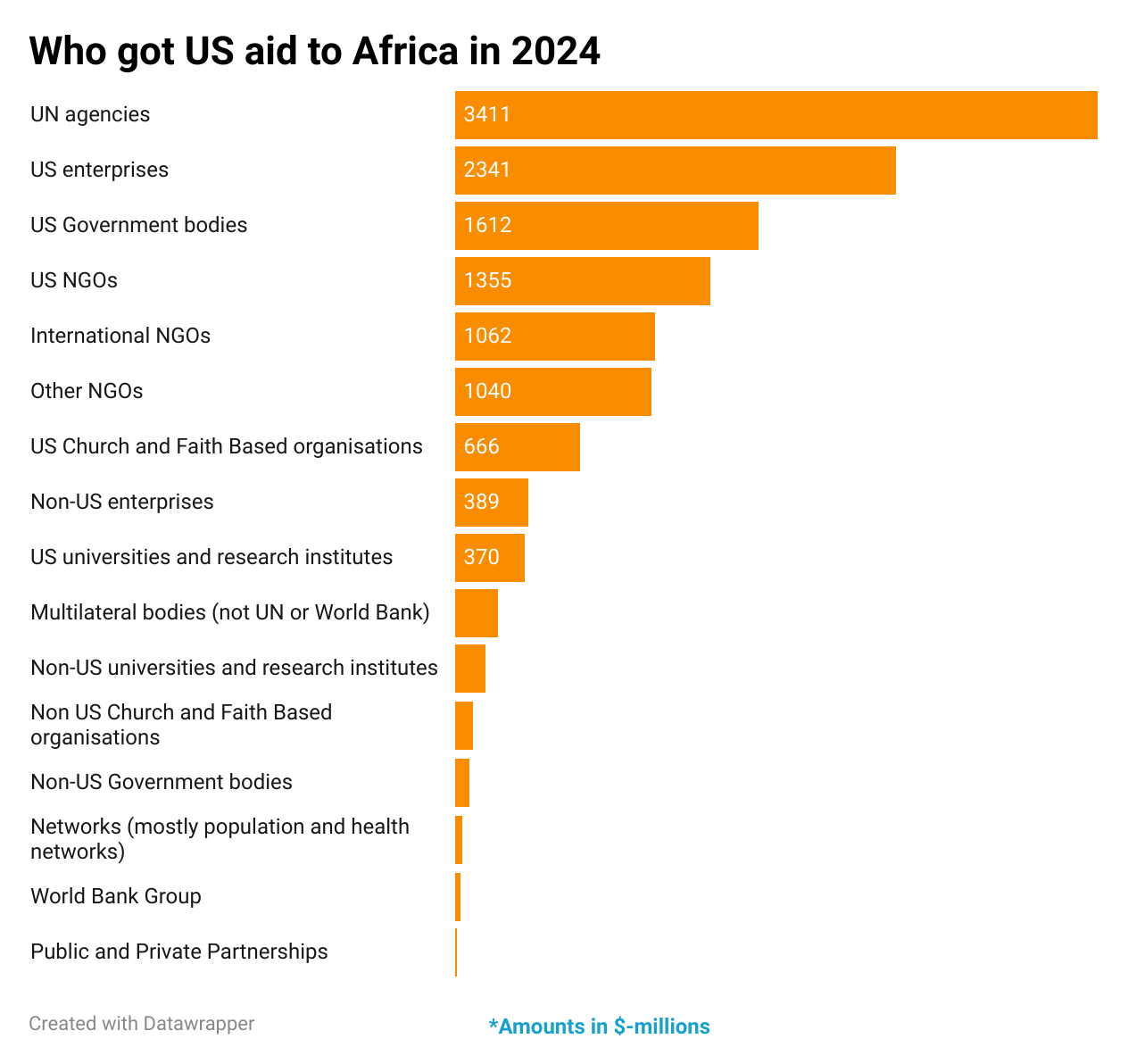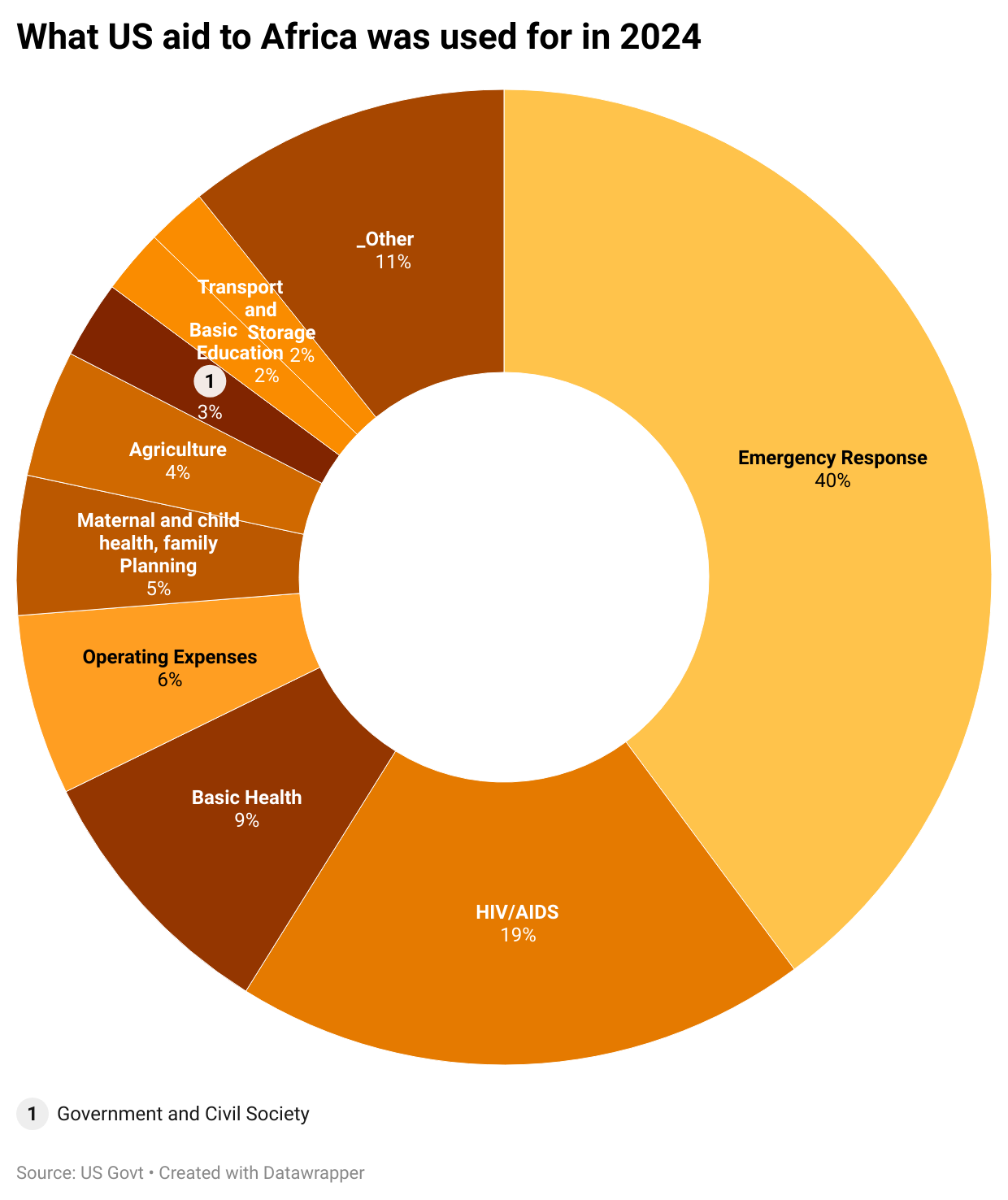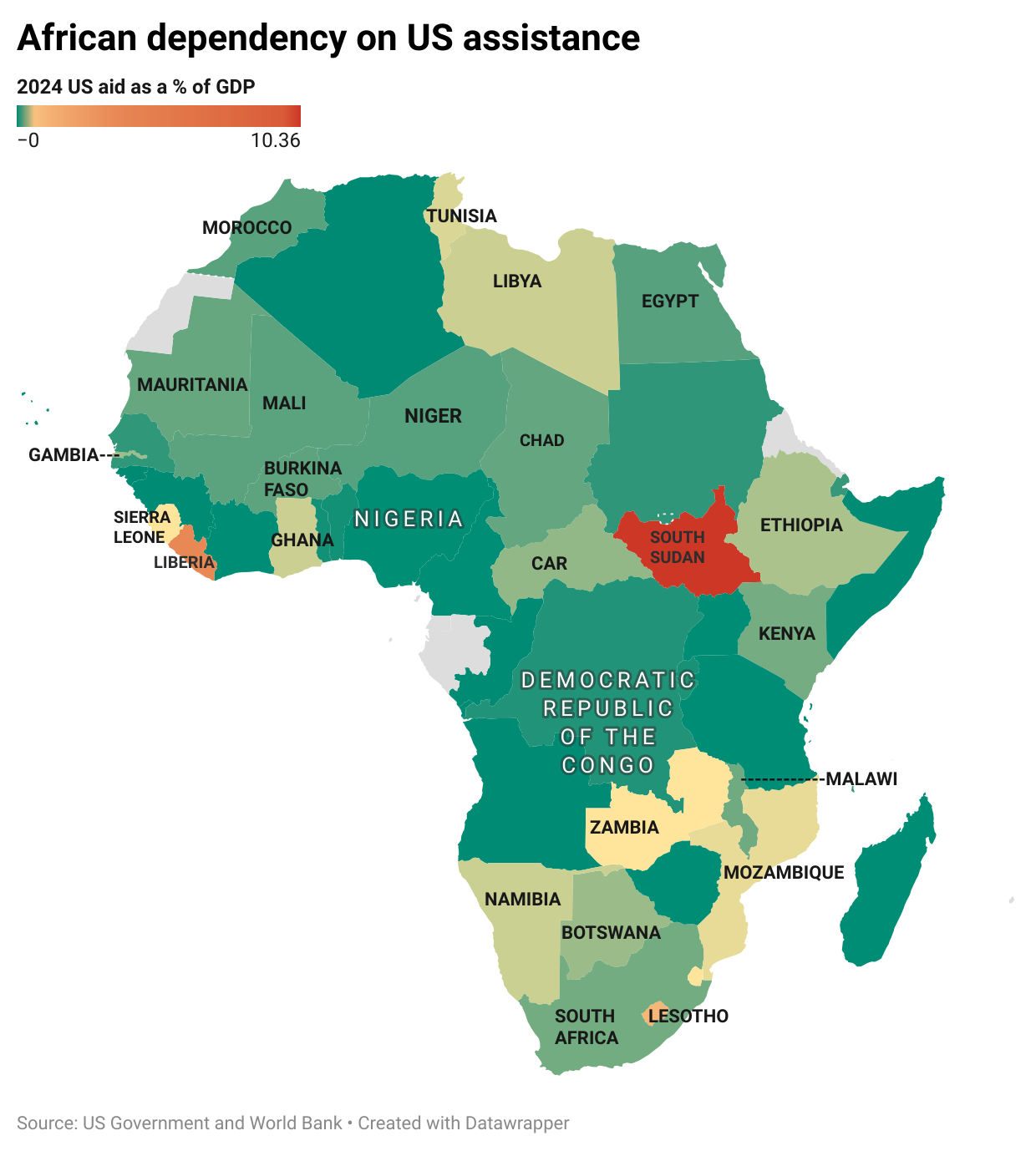The big US aid freeze: Who loses?
US President Donald Trump has begun his second term with a flurry of executive orders that are light on details but heavy on impact
Lydia Namubiru
US President Donald Trump started his second term at a very different speed to his first. Dozens of executive orders were signed in front of an indulgent crowd. These pulled the country away from reducing its impact on the climate crisis, away from global institutions and instead focused the country on its own backyard.
Several of the orders could have a profound impact on Africa, like leaving the treaty to get all countries to accept a 15% tax rate for companies and abandoning the World Health Organisation. The orders were light on detail. Some are already being challenged in the courts, albeit in a country where Trump has already stacked the highest court in his favour.
One order that has had an immediate impact is a 90-day freeze on his country’s foreign aid programmes. They can only go ahead after a re-evaluation to ensure that grants are fully aligned with Trump’s foreign policy. It is far from clear what that policy is for Africa.
The freeze is terrible news, both in Africa and for the American organisations that get two thirds of that money.
While US aid is rarely ever given directly to local actors, what trickles to the ground is a sizeable plug for public service gaps, especially during humanitarian emergencies and in the health and education sectors. Contrary to popular talk about its promoting so-called “woke” agendas, less than 3% of aid went to civil society activities in 2024. That’s according to data reported by the US government on its foreignassistance.gov website.
In the poorest countries, this plug is critical. Local incomes and wealth are currently too low for the governments to raise enough money locally (e.g. through better taxation) to meet the gap. In the extreme example of South Sudan, US aid amounts to more than 10% of the national GDP. In Liberia, it’s more than 3% of GDP.







I shared at bluesky and got this comment
Kindness costs no money
@cgtrsa.bsky.social
Where is Uganda on your map? they received $631 million last year
29 januari 2025 om 20:21